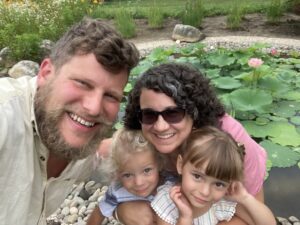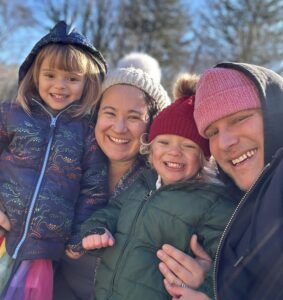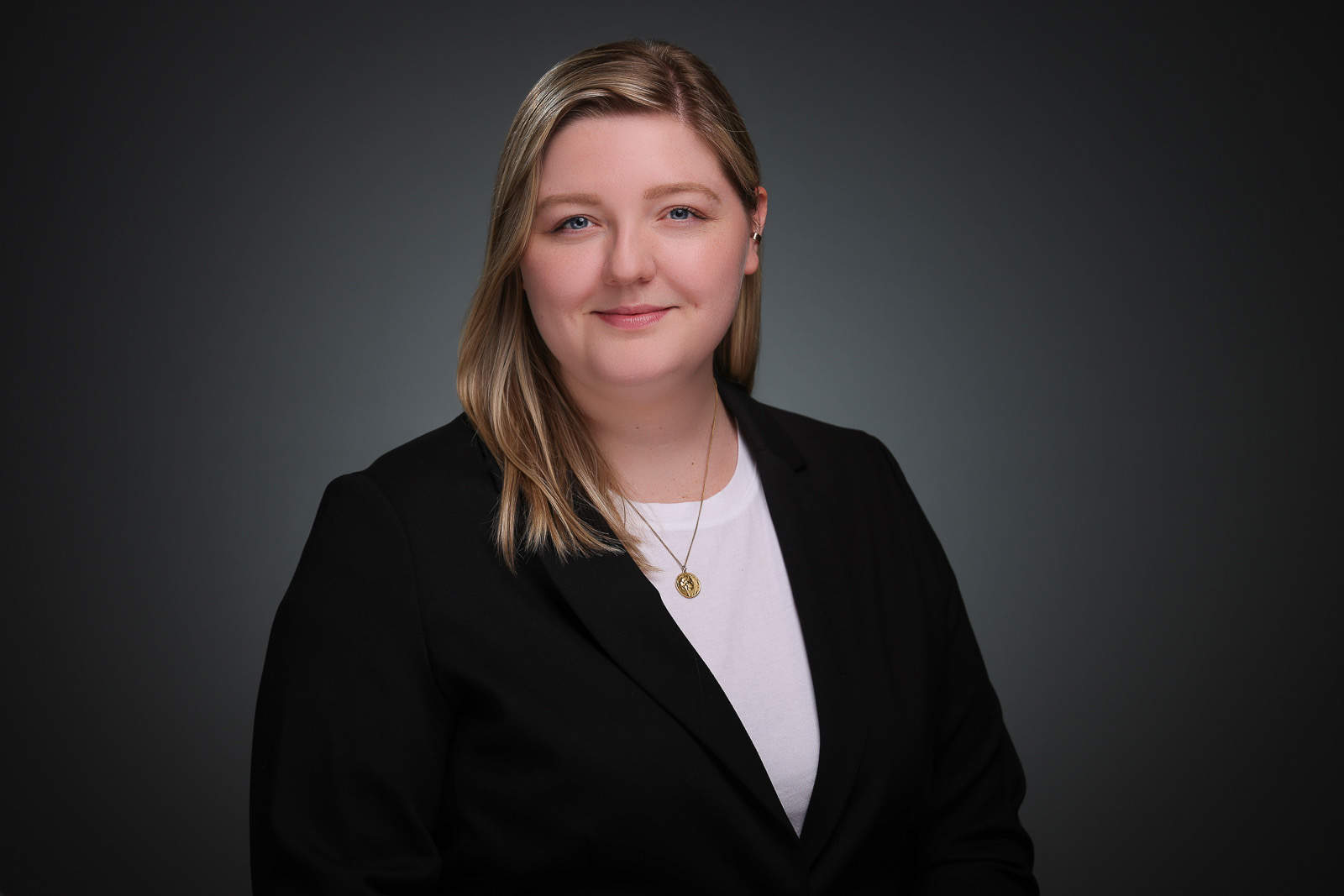For the past few years, NC Child has worked with the Georgetown Center for Children and Families on the “Lived Experiences Project.” This project, which works to tell the stories of parents and caregivers, aims to help better incorporate the lived experiences of families in advocacy efforts around Medicaid.
This year, the Lived Experiences Project had a focus around something called “the unwinding,” which refers to the disenrollment of individuals who qualified for Medicaid under the public health emergency during COVID. There are plenty of nuances I’m skipping over for the sake of brevity, but the main takeaway is this: thanks to thoughtful action from NCDHHS, North Carolina has the nation’s lowest rate of Medicaid disenrollments in connection with the unwinding. Additionally, NCDHHS received an award from the National Association of Medicaid Directors in recognition of the department’s work around Medicaid over the last year.
This is a good thing. There was a time when advocates were concerned about mass disenrollments—and especially the mass disenrollments of children who remained eligible even if their parents were no longer eligible.
A September report from KFF notes that North Carolina saw a 12% disenrollment rate, whereas other states like Montana saw a 57% disenrollment rate. The national average is 32%. Having a low disenrollment rate fundamentally means that fewer families experienced disruptions to their care—the challenge now is making sure that families who were disenrolled because they were determined ineligible or were disenrolled for other reasons can access the care they need.
That said, when we started this third and final year of the Lived Experiences Project, I don’t think any of us anticipated that North Carolina’s western region would be devastated by a storm as unprecedented as Hurricane Helene.
But this is where policy meets practice. KFF reports that nationally, among those who are disenrolled, 69% were disenrolled for procedural reasons. A “procedural” reason could be something as simple as having moved and not having an updated address on file or not seeing DSS paperwork come through the mail.
This brings me back to Helene.
With roads washed away and countless families displaced, what would’ve happened—or really, what could’ve happened—if they lost Medicaid coverage due to one of those “procedural” reasons?
For Christina Ruiz, whose family was displaced by Hurricane Helene, this wasn’t a question they had to ask—they maintained their coverage. For Ruiz’s family, Medicaid coverage helped them navigate uncertainty at various points in their lives; her hope now is that during a larger period of uncertainty for so many in the state, that those who need Medicaid can stay enrolled.
Ruiz and I were supposed to have a recorded Zoom interview as a part of the Lived Experiences Project, but due to the hurricane, we found a way to adapt. What follows is a Q&A that we exchanged via email.
EMILY: Hi Christina! Tell me a little about yourself and your family.
CHRISTINA: My name is Christina Ruiz, and I am an elementary school teacher at Mountain Laurel Montessori Collective in Old Fort, North Carolina. I live with my husband, Zach Cooper, and two children, Amari Rose (age 4) and Nico Em (age 2). We have lived in Western North Carolina since 2013.

EMILY: What role does Medicaid play in your family’s life?
CHRISTINA: I initially applied for Medicaid shortly after becoming pregnant with Amari in 2020 and at the beginning of the COVID-19 pandemic. At the time, I had no idea how helpful Medicaid would be or how long I would be able to stay on. I was grateful for the freedom that it allowed me in making choices for my personal care. As soon as I was able, I transferred to the WNC Birth Center so that I could get care with midwives, as I hoped to have an out-of-hospital birth. All of this would not have even been a dream if it hadn’t been for Medicaid, since I did not have insurance to cover the cost of a Birth Center.
EMILY: What has your experience been like accessing care through Medicaid?
CHRISTINA: Amari was born at 31 weeks; for her birth, I had to go to the hospital for an emergency C-section. What followed after I could never have even dreamed of. I had no idea that my child would end up in the NICU for five weeks. The hospital doctors and nurses quickly swept her away out of my reach and I had no idea what was going on.
I was released from the hospital without my daughter, who was still receiving around-the-clock care from skilled doctors and nurses. Meanwhile, medical bills started to arrive. Over the next few months, the bills went from hundreds of dollars to thousands of dollars. Trying to navigate the enormous expense while also having a child still in the hospital was a task I wouldn’t wish on anyone. It was because of Medicaid that I was able to take a breath, care for my child, and carry on without having to consider foreclosure on our house, food insecurity, and bills that kept piling up. Having a child in the NICU during the pandemic was stressful enough, but having access to care without worrying about whether or not we would lose everything was an enormous weight off our mental load.
Also, I was able to access mental health care through Medicaid at Black Mountain Counseling after the death of my father late last year. This helped me tremendously to unpack some of the trauma over the last four years between a global pandemic, two traumatic births, and the death of my grandmother and father—and now, surviving Hurricane Helene.
EMILY: What are some barriers to accessing care that you’ve faced?
CHRISTINA: During my second pregnancy, the Birth Center I wanted to use closed due to lack of funding. I was remiss without the midwives who so diligently care for me during my first pregnancy and with whom I formed relationships with. I did have to change providers late into my pregnancy, and it was hard to go through that experience. I felt like I did not have the same sense of being cared for or have the ability to form close relationships with my providers—the feeling left me anxious and stressed.
When my son was born, he was also born at 31 weeks and spent five weeks in the NICU. One of the more extreme conditions that the NICU staff checked for was Retinopathy of Prematurity (ROP); due to a lack of ophthalmologists in our area, we had to go all the way to Raleigh to be seen by a doctor for follow-up appointments. Traveling such a far distance was definitely a hardship and it made accessing care difficult. It also took several months to get mental health resources in 2024 due to an extensively long waitlist and few local providers who accepted Medicaid.
EMILY: In recent years, there’s been a lot of discussion around Medicaid Expansion and something called “the unwinding.” What do you know about these two events?
CHRISTINA: I’m not familiar with the unwinding, but I do know that as far as expansion is concerned, it’s helped a lot of people. Personally, when my youngest turned one in 2023 I thought that my time under Medicaid would shortly be up. However, when I called to ask, they simply said that I was still covered. I was shocked and surprised since I was not expecting that to be the case. I am just grateful for the medical attention it allows me to access.
EMILY: How do you feel programs like Medicaid are discussed in your social circles or more broadly in society?
CHRISTINA: I do not feel like there should be any stigma attached to saying that you are on Medicaid or are receiving help. A lot of the moms that I know that are on Medicaid qualify for it based on income. It’s unfortunate when people don’t understand how essential of a lifeline Medicaid can be for low-income families. Despite our best efforts to work, own a home, and making a life for ourselves, unforeseeable circumstances arise that no one can possibly be prepared for. Having access to health care should be a huge priority for all Americans regardless of income.
EMILY: What are some ways we can improve how we communicate about Medicaid to individuals and communities?
CHRISTINA: Information about Medicaid could really be posted anywhere. Libraries, schools, supermarkets—anywhere most people go during the day that are open and accessible to the public and in communities where there are low-income folks. Having representatives and social workers in hospitals who meet with individuals and families to discuss financial options and help them navigate the system could be helpful too.
EMILY: What do people get wrong about Medicaid?
CHRISTINA: I feel really frustrated when some people refer to Medicaid as a “hand out.” We all pay taxes and it’s how those taxes are allocated that makes a difference in the lives of Americans who are working hard to make a living and provide for themselves and their families. Medicaid is not a “hand out,” it is allocations of funds for those who need it to make access to healthcare equitable and fair.
EMILY: If you feel comfortable sharing, can you tell me a little bit about your experience of Hurricane Helene?
CHRISTINA: I don’t think anyone expected the severity of Hurricane Helene in the mountains of Western North Carolina. When we initially moved here, we did so in search of a safe wholesome place with clean water and fresh air.
We moved from NYC shortly after Hurricane Sandy shook our apartment building and half of Manhattan was without power. We thought we would be safe in these mountains and made it our home for the past ten years. This natural disaster has uprooted us and shaken us to our core. What was once safe, familiar, and our foundation feels like it is crumbling.
As parents we are extremely concerned about the health of the environment, the areas’ rivers and air are becoming polluted with toxic chemicals that have leached from buildings all over the region. How will we protect our children and give them safe water and clean air in the aftermath of Hurricane Helene if we choose to stay?
These are such difficult questions to ask since our home and community is in the Blue Ridge Mountains. We are so uncertain of what the future holds but know that ultimately, we must do what is best and safest for our children.

EMILY: Something I don’t know how to fully articulate is this question I have about Medicaid recertification and what that looks like for families who are displaced. Do you know anything about this?
CHRISTINA: Personally, I hope that there is an extension of the time allowed for recertification and that other issues can get sorted out. I know that mail was not running for days and mail may also be lost to the storm. So many families have fled the area. I don’t know if there are any contingency plans, but I hope that those who are up for recertification are given grace and allowed to stay on as long as possible.
EMILY: What does the future look like for you and your family? What do you hope for?
CHRISTINA: The future feels so uncertain right now. We recently heard back from both our children’s schools asking when we would plan to be back in the area. The hard honest truth is that we do not feel comfortable going back yet.
There is still no running water in our house and even when it is restored we will be under a boil water notice until the State says that the water is safe again. This could be weeks before the process is complete. How can we subject our children to the dangers that they might face when we return?
Our only hope is to protect our children and keep them healthy and safe. I would hope that we can do that in the home that we have made in Black Mountain, but if we are unable to do that we will have to weigh our options and make some radical life choices that will not be made lightly.

